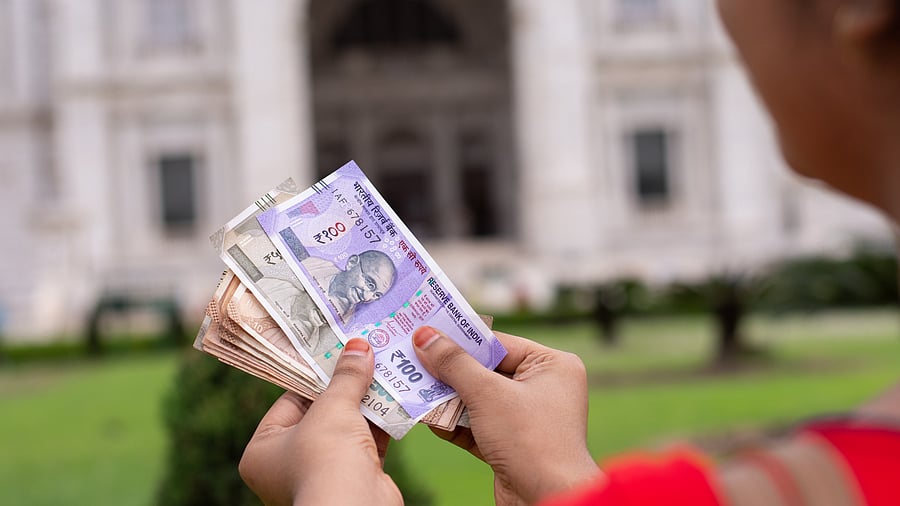
Image for representational purposes.
Credit: iStock Photo
New Delhi: A total of 12 states across India will collectively spend Rs 1.68 lakh crore on unconditional cash transfer schemes for women in 2025-26, up from just two states implementing such programmes three years ago, according to a new report by think tank PRS Legislative Research.
The report said six of these 12 states have projected a revenue deficit this year, highlighting growing fiscal pressure linked to the rapid expansion of women-centric welfare payouts.
"Among the 12 states implementing UCT schemes, six have estimated a revenue deficit in 2025-26. However, adjusting the revenue balance to exclude spending on UCT schemes shows an improvement in fiscal indicators of these states," the report said.
Unconditional cash transfer (UCT) schemes, which aim to empower women from economically weaker households through monthly direct benefit payments, have become a key welfare feature in several states.
The number of states providing largely unconditional cash transfers (UCT) to women has increased from two states in 2022-23 to 12 states in 2025-26.
The primary beneficiaries of these schemes are selected on the basis of an income threshold, age group, and other factors.
States such as Assam and West Bengal have sharply increased their allocations to women's UCTs over the previous year by 31 per cent and 15 per cent, respectively.
Crucial initiatives include Tamil Nadu's Kalaignar Magalir Urimai Thogai Thittam, Madhya Pradesh's Ladli Behna Yojana, and Karnataka's Gruha Lakshmi scheme, each offering monthly support ranging from Rs 1,000 to Rs 1,500 for women in eligible households.
However, the report cautioned that these schemes are adding strain to state budgets.
Adjusted fiscal estimates show that Karnataka, for example, would move from a revenue deficit of 0.6 per cent of its GSDP to a surplus of 0.3 per cent if the UCT expenditure were excluded. Similarly, Madhya Pradesh's surplus would improve from 0.4 per cent to 1.1 per cent.
The Reserve Bank of India (RBI) had earlier warned that rising expenditure on subsidies and cash transfers for women, youth, and farmers could reduce fiscal space for productive spending.
Some states have already adjusted benefits to manage costs. Maharashtra cut monthly payouts under the CM Ladki Bahin Yojana in April 2025, while Jharkhand increased payments under the CM Maiyan Samman Yojana to Rs 2,500 per month in late 2024.